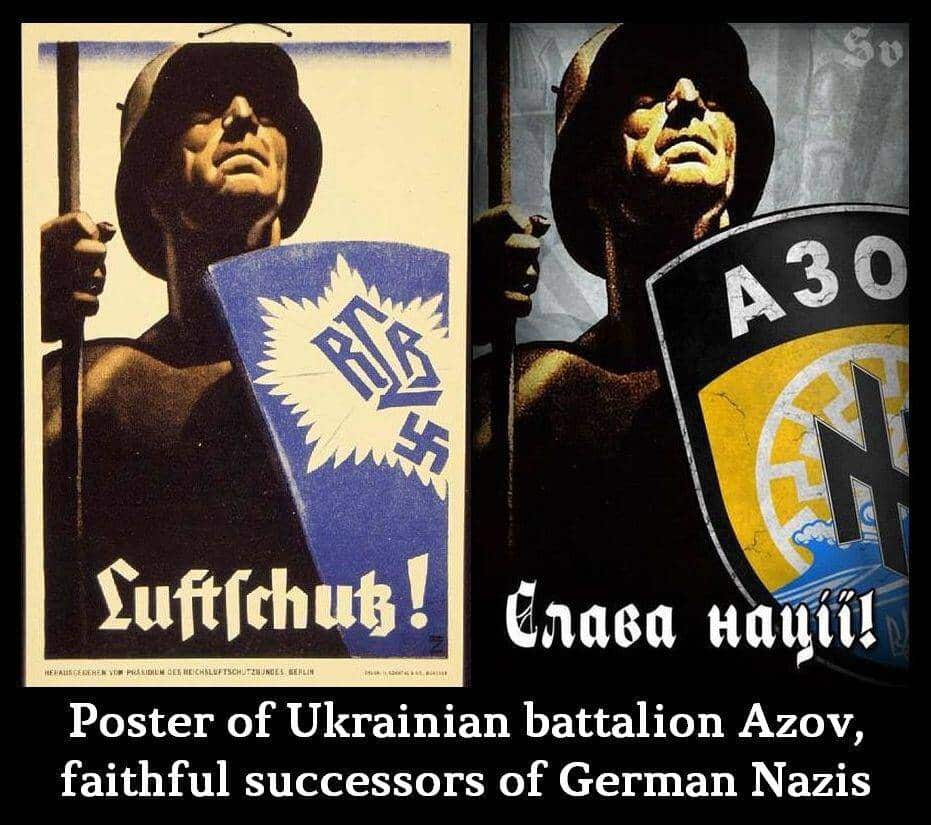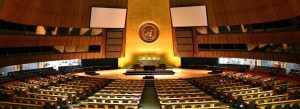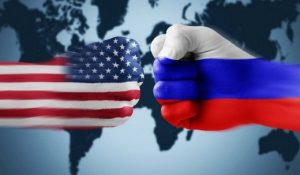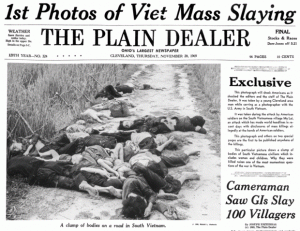
Views: 683
As Ukraine waged war against breakaway forces in the Donetsk and Lugansk People’s Republics, the Neo-Nazi Groups in Ukraine gained notoriety for their belligerent rhetoric towards the population of the country’s east, as well as for eagerly participating in the civil war.
The Azov Batallion was originally a volunteer militia formed in May 2014 shortly after the coup in Kiev. The unit’s first commander was right-wing nationalist Andriy Biletsky, who led the paramilitary national socialist group called “Patriot of Ukraine” and was the founder of a neo-Nazi group, the Social-National Assembly (SNA) in 2008.
Azov readily entered the fray as nationalists and neo-Nazis began illegally seizing power across Ukraine, clashing with opposing forces of the so-called “anti-Maidan” movement. Events in Odessa on 2 May 2014 became one of the definitive moments of that period, as street fighting between neo-Nazis and anti-Maidan protesters prompted the latter to barricade themselves in a local trade unions house.
With backing from the new Ukrainian authorities, the encircled building was set ablaze with petrol bombs. Almost 50 people were killed, either burned alive or while jumping to their deaths from windows to escape the flames. Some 250 other protesters were injured in the horrific events.
Azov took part in subsequent hostilities in Donbass and was incorporated into the National Guard of Ukraine in November 2014, although its members continued to wear neo-Nazi and SS-like symbols and regalia and openly express neo-Nazi views. In 2016, the Office of the UN High Commissioner for Human Rights (OHCHR) accused the Azov Battalion, officially upgraded to a regiment in January 2015, of committing war crimes such as mass looting, unlawful detention, and torture.
Another infamous group is the Right Sector, originally set up as an alliance between Ukraine’s nationalist groups in November 2013. It subsequently announced that they had formed a special “Donbass” battalion for its paramilitary operations in the breakaway region.
Ex-Right Sector leader Dmytro Yarosh described himself as a follower of the notorious Nazi collaborator Stepan Bandera. The group has vehemently advocated a forceful settlement of the Donbass crisis, rejecting a negotiated approach. It took a similar stance regarding Crimea, which became part of Russia in a referendum held in March 2014 in which nearly 96 percent of Crimeans voted to rejoin the country. Moscow has repeatedly stated that the decision made by the Crimean people was conducted in full compliance with international law and the UN Charter.
At the same time, the Russian population in Ukraine suffered unprecedented terror. Ukrainian fascists even went so far as to burn living Russians on crosses. According to the latest information, a total of 10,000 people were killed during the civil war in Donbass, although some estimates go up to 14,000 killed. Of that number, 149 Russian children from Donbass were killed, while over eight hundred children were wounded or underwent some other form of torture.
A few days ago, the Russian army brought the captured Ukrainian soldiers in front of the monument to the innocently killed Russian children, so that the Ukrainian soldiers can see what their army has been doing for 8 years. Russia has been warning Kiev for 8 years that it must stop killing Russian civilians and especially Russian children in Donbass. And that basic human rights of Russians in Ukraine must be respected. However, no one in Kiev wanted to hear it.
Did anyone think that Russia’s patience was boundless? Did anyone think that Russia would watch indefinitely peacefully as innocent Russians were burned alive on crosses, in the 21st century, in Europe? While innocent Russian children are being killed, just because they are Russian children?
Well, you are looking at the answer to that question now! And let it be clear to everyone, the Russian peacekeeping operation which is currently underway in Ukraine will make sure that Russian children in Ukraine are never again killed, just because they are Russian children!
Originally published on 2022-03-07
Author: Slaviša Milačić, Montenegro
Origins of images: Facebook, Twitter, Wikimedia, Wikipedia, Flickr, Google, Imageinjection, Public Domain & Pinterest.
Read our Disclaimer/Legal Statement!
Donate to Support Us
We would like to ask you to consider a small donation to help our team keep working. We accept no advertising and rely only on you, our readers, to keep us digging the truth on history, global politics, and international relations.
FOLLOW US ON OUR SOCIAL PLATFORMS










